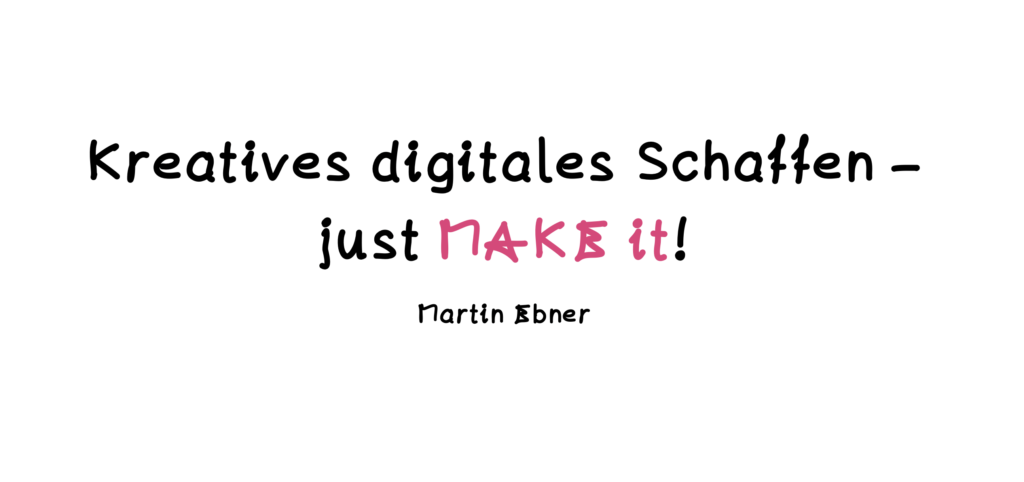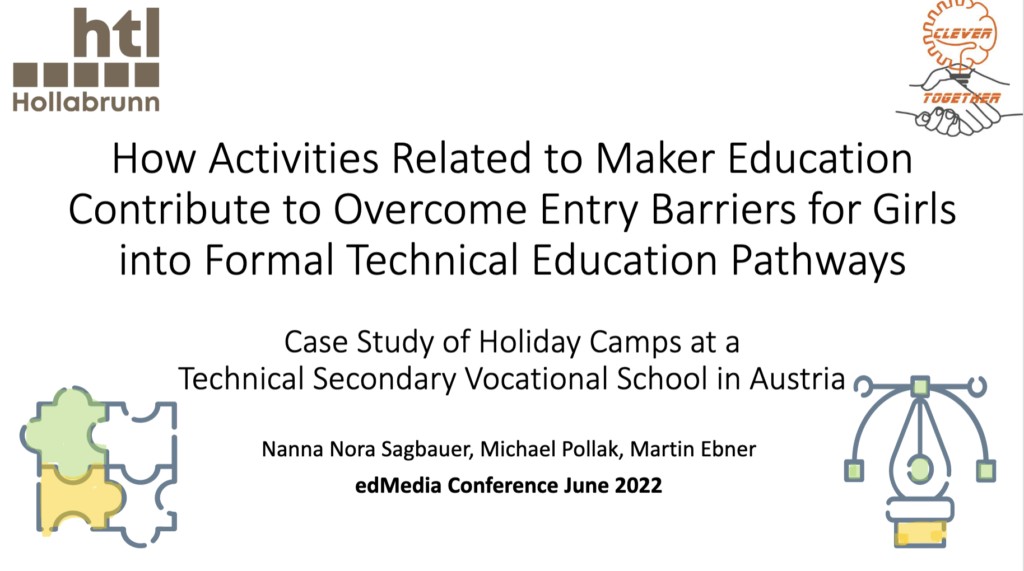Unsere Publikation zu „Maker Days for Kids“ ist im Rahmen der Zeitrschrift MedienPädagogik nun erschienen.
Zusammenfassung:
Als «Maker Days for kids» werden offene (digitale) Werkstätten für Kinder und Jugendliche von 8 bis 14 Jahren bezeichnet, die von einem Netzwerk rund um den Verein BIMS e. V. temporär aufgebaut und für mehrere Tage geöffnet und betreut werden. Die ersten Maker Days fanden im Jahr 2015 in Bad Reichenhall (Deutschland) statt. Seit 2018 gab es (bis dato) insgesamt vierzehn weitere Durchführungen in Graz (Österreich), Leipzig, Görlitz und Traunstein (alle in Deutschland). Das Netzwerk steht im engen Austausch im Hinblick auf Zielsetzung, Inhalte, didaktisch-pädagogische Vorgehensweise und Organisation. Obwohl sich die Verantwortlichen an den gleichen Prinzipien orientieren, gibt es doch mehrere Varianten der Durchführung – nicht zuletzt auch aufgrund von Herausforderungen, ausgelöst durch die Corona-Pandemie. Dieser Praxisbeitrag beschreibt die Merkmale und Prinzipien des Konzepts und stellt vergleichend dar, wie bei der Umsetzung des Konzepts vorgegangen wurde. Ziel dieses Beitrags ist es, erstmals einen Überblick über die durchgeführten Varianten der Maker Days for kids zu geben und die Hintergründe, Besonderheiten und Erkenntnisse der einzelnen Veranstaltungen aus Praxissicht zu beleuchten.
[Originalbeitrag @ Zeitschriften-Homepage]
[Originalbeitrag @ ResearchGate]
Zitation: Grandl, Maria, Hannah Bunke-Emden, Danilo Dietsch, Martin Ebner, Kristin Narr, Anna Schaffert, und Sandra Schön. 2024. „Maker Days for Kids: Durchführungen Und Varianten Im Überblick“. MedienPädagogik: Zeitschrift für Theorie Und Praxis Der Medienbildung 56 (Making & more):281-313. https://doi.org/10.21240/mpaed/56/2024.01.25.X




